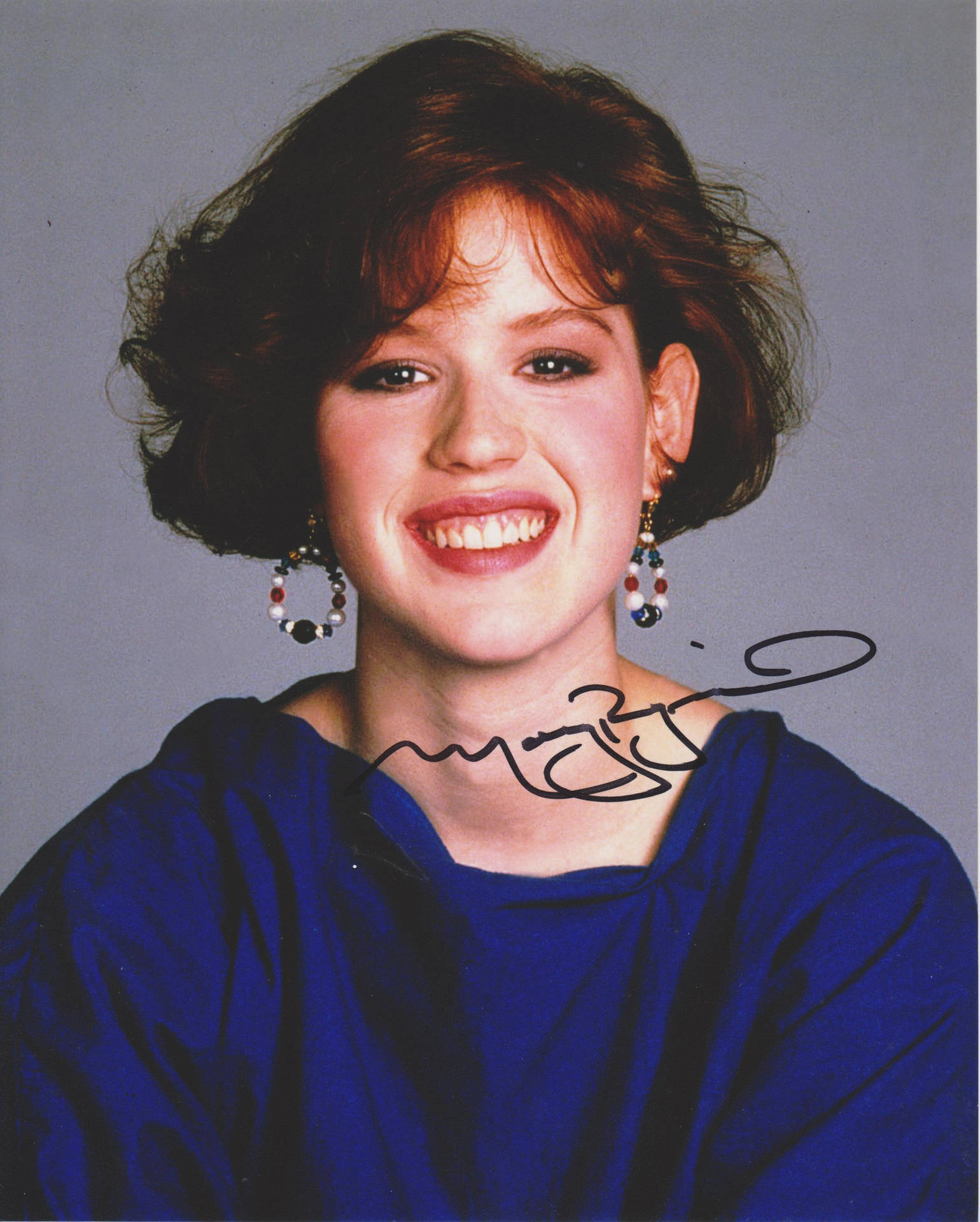Who Is Molly's Husband? Unpacking The Mystery Behind A Common Query
Detail Author:
- Name : Leonor Reichert
- Username : mozell46
- Email : tressa.hansen@hotmail.com
- Birthdate : 1982-08-19
- Address : 706 Derrick Islands Apt. 010 Daughertyfort, OR 58783
- Phone : 218-822-5161
- Company : West and Sons
- Job : Painter and Illustrator
- Bio : Sint voluptas voluptatem et a ad est eum nostrum. Debitis ipsam optio omnis aut. Cumque sit culpa esse debitis molestiae corporis sunt. Ut aut temporibus dolores sequi consectetur sed dolor.
Socials
facebook:
- url : https://facebook.com/maxwell_paucek
- username : maxwell_paucek
- bio : Quod omnis et harum. Aliquid quod harum et voluptas esse voluptates.
- followers : 4661
- following : 1798
twitter:
- url : https://twitter.com/maxwell_paucek
- username : maxwell_paucek
- bio : Sequi numquam error voluptatem est. Dolorem at illum sunt quis dolor sunt sint ipsa. Officia soluta est nam itaque qui et repudiandae.
- followers : 6140
- following : 369
Have you ever heard someone mention "Molly" and wondered, perhaps, who this person is, or even, who is Molly's husband? It's a question that, you know, pops up sometimes, and it's really quite natural to be curious when a name like that comes into conversation. Many folks might hear the name and instantly picture a person, maybe a character from a story or someone well-known, and that's a pretty common way our minds work, actually. So, it's not at all strange to find yourself asking about a partner or a family connection, like a husband, when you encounter a name you don't immediately place.
But, you see, the "Molly" we're often talking about in certain discussions isn't a person at all, which is a bit of a twist, isn't it? It's kind of interesting how a simple name can carry such different meanings depending on the setting, and that's very much the case here. This particular "Molly" has a very different kind of story, one that's perhaps less about personal relationships and more about, well, something else entirely.
This article aims to clear up that very common mix-up, you know, to shed some light on what "Molly" really refers to in many contemporary discussions. We're going to explore what this "Molly" actually is, what it does, and why it's so important to understand the facts surrounding it. It's a topic that, honestly, many people should know more about, especially given how widely the term is used, so stick with us.
Table of Contents
- Unraveling the Name: What 'Molly' Actually Means
- The Journey of 'Molly': From Therapy to Festivals
- Understanding the Effects: What Molly Does to Your Body and Mind
- The Serious Risks and Dangers of 'Molly'
- Why 'Molly' Isn't Looking for a Husband: Clarifying the Misconception
- Frequently Asked Questions About 'Molly'
Unraveling the Name: What 'Molly' Actually Means
So, when people talk about "Molly" in a context that makes you wonder about a husband, they're actually, more often than not, referring to a substance. This substance is MDMA. It's a synthetic drug, you see, and it has effects that are both stimulating and, in a way, hallucinogenic. This is something that many might not realize when they first hear the name, which is perfectly understandable.
MDMA is, you know, also known by another very common name: ecstasy. People often use these terms interchangeably. Ecstasy, or MDMA, is a popular rave drug, really, that you often find used at nightclubs. It's also quite common at music festivals, particularly as summer outdoor music festival season heats up. So, when you hear "Molly," it's generally this party drug people are talking about, not a person.
The term "Molly" itself, you know, is often thought to mean "molecular." It's supposed to suggest a purer form of MDMA, perhaps. However, someone who buys or takes Molly now is probably ingesting something quite dangerous. It's very likely that what they're taking is not pure at all. This is a crucial point, as a matter of fact, for anyone who might encounter this term.
You see, this drug, MDMA, can also be called "e," "x," or "xtc" when it's in tablet form. These names, too, often include the possibility of other things mixed in. These could be what we call adulterants or diluents. So, it's not just the main chemical; there could be other substances present, which really changes things, doesn't it?
The Journey of 'Molly': From Therapy to Festivals
It's interesting to consider how MDMA, which is often called Molly or ecstasy, became one of America's favorite drugs. Its story, you know, actually began quite differently. It was first synthesized in 1912 by a German chemist, but its use as a party drug is a much more recent development, really.
In the 1980s, MDMA, you know, kind of "escaped" from the world of professional MDMA therapy. It had been used in some therapeutic settings, which is a bit surprising to some people, I guess. Therapists used it to, perhaps, help patients open up and explore their feelings. It was thought to foster a sense of connection, which, you know, could be helpful in certain discussions.
However, over time, its use shifted pretty dramatically. It became widely known as a recreational drug. This shift led to its widespread popularity at events like raves and music festivals. It's almost as if it found a new home in those vibrant settings, you know, becoming synonymous with certain types of social gatherings. This is where many people first encounter the term "Molly" today, or at least hear about it.
Even though Molly might still be a mystery to some folks, millions are, you know, quite aware of it. Its presence at these large events is really quite notable. It's a significant part of the culture for some people, which is something to consider when we talk about its reach and its history, too, it's almost a part of the landscape now.
Understanding the Effects: What Molly Does to Your Body and Mind
When someone takes Molly, or MDMA, it causes a range of effects on both the body and the mind. It's known for its euphoric effects, for one thing, which means it can make people feel really good, a sense of intense happiness. It also has what are called empathogenic effects. This means it can alter mood, you know, making people feel more connected to others, and enhancing their emotional experience. It's a pretty powerful emotional shift, apparently.
The drug, ecstasy or MDMA, acts as both a stimulant and a hallucinogen. This combination means it produces an energizing effect, so people might feel more awake and active. It also causes distortions in time and perception. Things might look or feel different, or time might seem to pass at a different speed, which can be quite disorienting, actually.
Beyond that, it can lead to an enhanced enjoyment of tactile experiences. This means that touch, for example, might feel more intense or pleasurable. It increases levels of energy, which is why it's often used in settings where people are dancing for long periods. It can make someone feel quite lively, you know, for a while.
However, it's important to understand that these effects are not without consequence. The way this drug affects your body and mind is quite profound. It's not just a simple feeling of happiness; it's a complex chemical process that alters how your brain works, even if only temporarily. Learning about these facts, you know, is something users may be unaware of, and it's quite important to know.
The Serious Risks and Dangers of 'Molly'
While the initial effects of Molly might seem appealing to some, the drug carries significant risks. One of the biggest concerns is that someone who buys or takes Molly now is probably ingesting dangerous synthetic drugs. These substances have not been tested, which is a huge problem. You just don't know what's in them, you know, not really.
Moreover, these dangerous synthetic drugs are produced in widely varying strengths. This means one dose could be much stronger or weaker than another, even from the same source. This unpredictability makes it incredibly risky. It's like, you know, a roll of the dice every time someone takes it, which is pretty scary, actually. This lack of consistency can lead to serious health issues, or even worse outcomes, you know.
There are many dangers associated with Molly, including a range of side effects. These can be physical or mental. There are also serious risks tied to its use. For example, the risk of overdoses of party drugs like Molly and ecstasy heats up as summer outdoor music festival season arrives. This is a very real and present danger, unfortunately.
Beyond the immediate risks, there's also the potential for addiction. While often not thought of as physically addictive in the same way some other substances are, psychological dependence can certainly develop. Learning more about its dangers, including side effects, risks, and potential, is really something everyone should do. Discovering the steps to overcome Molly's addiction is also vital for those who find themselves struggling. You can learn more about this topic on our site, and discover more related information here.
Why 'Molly' Isn't Looking for a Husband: Clarifying the Misconception
So, to bring it all back to our original question, "Who is Molly's husband?" The simple answer, you know, is that there isn't one. The "Molly" we've been discussing throughout this article isn't a person. It's a street name for MDMA, a chemical compound, which is quite different from a human being, obviously.
This misunderstanding is actually pretty common. It just goes to show how language can sometimes create confusion, doesn't it? When a word or name has multiple meanings, it's easy to get them mixed up, especially if one meaning is widely recognized in a particular context, like a person's name, and the other is more specialized, like a drug term. It's a bit like a linguistic puzzle, in a way.
Understanding that "Molly" refers to a drug, with all its associated effects and dangers, is a really important piece of information. It's one of those nine things everyone should know about this rapidly changing party drug. This clarity, you know, helps us talk about the real issues involved, rather than getting caught up in a misinterpretation of a name. It helps us focus on the facts that users may be unaware of, too, which is quite important.
The term "Molly" continues to be used widely, so it's good to be informed. It helps to clarify conversations and ensure that everyone is on the same page when discussing what can be a very serious topic. It's about being accurate, you know, and making sure the right information is out there for people to find. For more factual information on MDMA (Molly), you can check out resources from reputable health organizations.
Frequently Asked Questions About 'Molly'
Is Molly a real person?
No, "Molly" is not a real person in the context of common discussions about drugs. It's a popular street name for MDMA, which is a synthetic drug. So, you know, it's a chemical substance, not a human being. This is a common point of confusion, actually, for many people who hear the term.
What is Molly?
Molly is a nickname for MDMA, which stands for 3,4-methylenedioxymethamphetamine. It's a synthetic drug that has both stimulant and hallucinogenic effects. It's also known as ecstasy. People often use it at nightclubs and music festivals because of its energizing and mood-altering effects, you know, it's a party drug, basically.
What are the effects of Molly?
Molly can produce a range of effects. It's known for causing feelings of euphoria and empathy, making people feel very happy and connected to others. It also acts as a stimulant, increasing energy levels, and can cause distortions in time and perception. There's also an enhanced enjoyment of tactile experiences, you know, like touch. However, it also carries significant risks and potential dangers, which is very important to remember.


